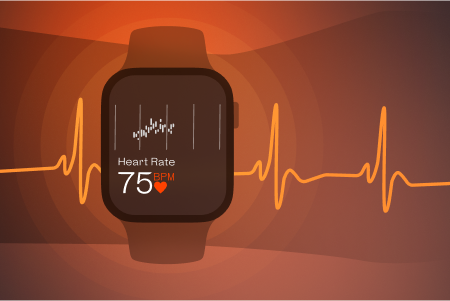
Measuring Resting Heart Rate
From manual pulse counts to the latest in app technology, dive into the transformative journey of heart rate monitoring
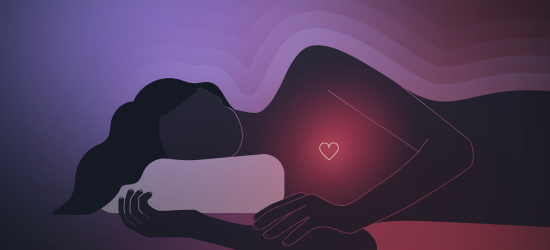
Think of sleep as a housekeeping mechanism for your body. Without sleep, your body can’t form pathways in your brain that let you concentrate, learn new things, and create memories. Sleep is essential for survival and cognitive function. A recent study suggests that without sleep, toxins build up in your brain while you’re awake, increasing the risk for high blood pressure, cardiovascular disease, diabetes, and depression.
There are a few ways you can monitor your sleep to analyze its quality. Different technologies use sounds, movements, and pulse analyses. Your heart rate during sleep changes depending on several factors, including which stage of sleep you’re in. This is why pulse monitoring is considered the most accurate method to monitor sleep.
Heart rate (HR) is the number of times your heart beats in a minute. Both resting (when you are staying still with no particular stimuli) and normal (when you’re engaged in your day-to-day- activities). Your heart rate is individual and depends on age and fitness level. A resting heart rate (RHR) between 60 and 100 beats per minute is considered normal.
Your resting heart rate can provide valuable information about your health. A low RHR (e.g., around 60 beats per minute) can indicate cardiovascular fitness, whereas a high RHR can be an adverse sign. If your resting pulse is below 40 or above 120, it’s best to talk to your doctor.
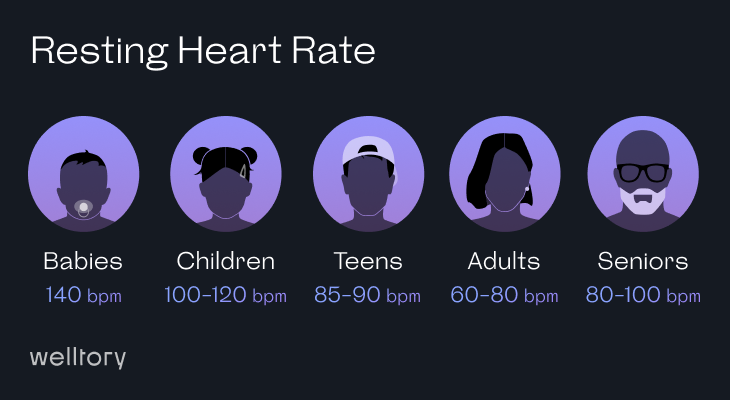
Heart rate increases when a person is active or exercising. Heart.org suggests that the maximum heart rate is about 220 minus your age. Exercise heart rate is usually about 50-70% of maximum heart rate, however, it can be up to 85% of maximum rate during vigorous physical activity. Maximum heart rate declines with age. The target heart rate for exercise also declines as we get older.
Heart rate variability (HRV) measures the time elapsed between heartbeats, which varies from beat to beat. HRV also reflects the current state of your nervous system. Healthcare professionals use HRV to analyze patient variability when treating chronic illnesses, for instance: diabetes, renal failure, neurological and psychiatric conditions, sleep disorders, and recovery from alcohol and drug use disorders. Understanding your heart rate and HRV during sleep can help you adjust your routine for better recovery of both your physical and mental health.
Get Welltory
for better sleep
Get Welltory
for better sleep
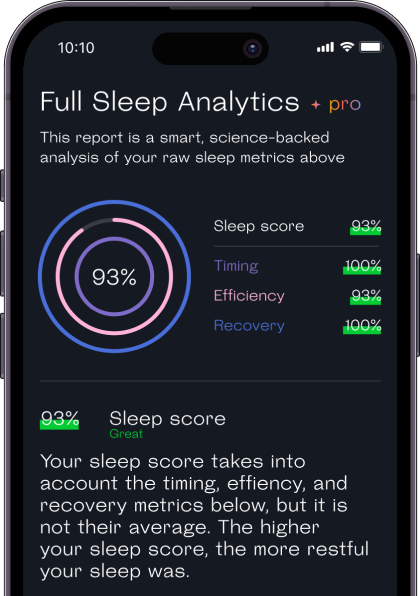
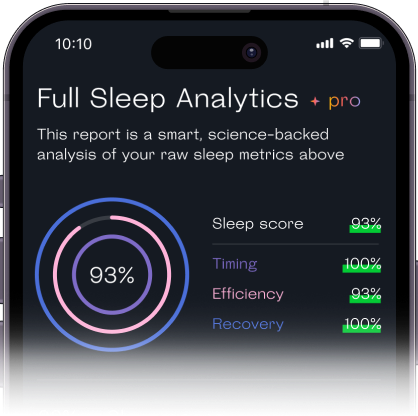

When you are at rest, your body needs less oxygen, making your heart pump less blood. While heart rate decreases, it does not necessarily mean that your heart rate variability during sleep will be low. In fact, it will fluctuate depending on the stage of sleep.
To understand what a good heart rate and rate variability during sleep are, we’ll need to dive into the sleep stages you go through in a night.
Your sleep cycle consists of two phases:
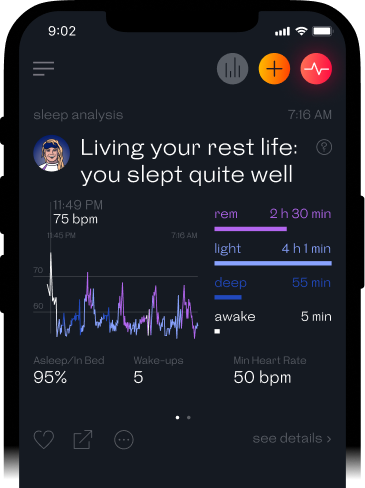
[Sleep cycle with REM and NREM phases]
The average sleep cycle lasts around 90 minutes, so you’ll go through between 4 to 6 cycles in one night.
Your heart rate during sleep is called nocturnal heart rate. Nocturnal heart rate is an important metric that helps quantify how well your cardiovascular system is working.
The average heart rate falls steadily from the waking stage to deep sleep:
Light sleep: When we enter light sleep, the heart rate gradually slows to around our resting heart rate.
Deep sleep: During deep sleep, the heart rate decreases to its lowest levels. When you enter the deeper sleep stages, your heart rate can drop 20% to 30% below your resting heart rate.
REM sleep: Heart rate during REM sleep, on the other hand, may speed up to a rate similar to when you are awake. REM sleep is also when you dream, so your heart rate can be influenced by the contents of your dreams. Dreaming about running away from a monster? Your HR will speed up just like it would if you were running in real life.
It is normal for nocturnal heart rate values to be slightly lower even than waking RHR. Your heart rate during sleep can go as low as 40 to 50 beats per minute. The average heart rate falls steadily from the waking stage to deep sleep. During REM, HR increases lightly and presents greater variability than during wakefulness.
The overall pattern of HR and HRV changes is influenced by body circadian temperature, stage of sleep, body movements, and awakenings.
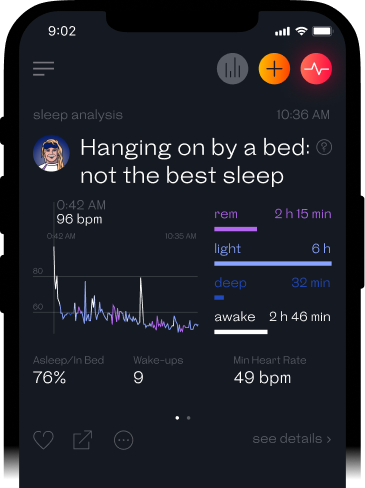
[Heart rate fluctuations during sleep and different sleep stages]
Heart rate can spike during sleep due to the lack of oxygen, which is often brought on by obstructive sleep apnea (OPA). When you experience trouble breathing, your brain recognizes that things aren’t right and wakes you up to kickstart normal breathing functions again. This causes your heart to beat faster and compromises the quality of your sleep. Frequent spikes in your heart rate are not healthy in the long turn because they stress the health of your heart. Studies show that OSA may increase the risk of atrial fibrillation (heart arrhythmia) with symptoms such as fatigue, shortness of breath, and chest pain. Atrial fibrillation is associated with cardiovascular conditions, including stroke and heart failure.
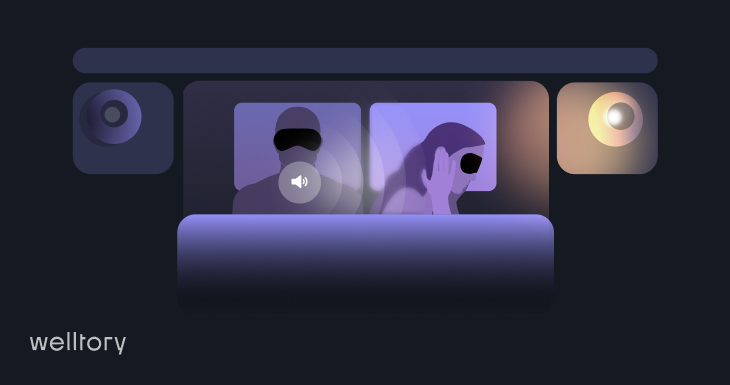
Nightmares, night terrors, and sleep paralysis can all cause physical symptoms in the body that lead to a racing heart. Diet and certain drinks can significantly impact sleep quality, especially when consumed at night. Having sweet treats and drinking alcohol or coffee before bed may cause elevated heart rate during sleep. Being dehydrated can lead to an irregular heartbeat leaving you with a rapid heart rate and breathing and low blood pressure.
Waking up during any stage of sleep increases sympathetic activity, elevates heart rate and blood pressure, and lowers HRV. Reduced HRV is associated with increased cardiovascular risk. If your heart rate does not slow down during sleep at all, it might indicate cardiovascular health issues. Don’t panic if it happens now and then but remember that if it happens too often or every night, it might be a good idea to start tracking how well you sleep and visit a doctor.
Getting enough sleep is important, but the quality of your sleep is also significant. Based on an in-depth analysis of your overnight heart rate patterns and historical sleep data, Welltory’s insights are personalized and packed with information that will steer you toward better recovery. Welltory Pro gives you a detailed sleep analysis that shows how well you slept last night.
To get your sleep analysis, sync your tracker or smartwatch with Apple Health. We’ll grab your sleep data from there and send the analysis to your feed.
In addition to the sleep analysis, you’ll get to look at your raw sleep metrics — your resting heart rate, wake-ups, and total sleep time are all here. This is the data our algorithms use to analyze your sleep.
Inside the app, you will find a detailed breakdown of your smart sleep metrics. You can see which factors impacted your sleep quality most and learn more about what your body needs for better recovery. Once you know how you’re sleeping, it will be much easier to improve it. Maintaining positive habits such as exercising may help strengthen the body’s most vital muscle — the heart.
Welltory Team, upd. 02 Feb. 2023

From manual pulse counts to the latest in app technology, dive into the transformative journey of heart rate monitoring
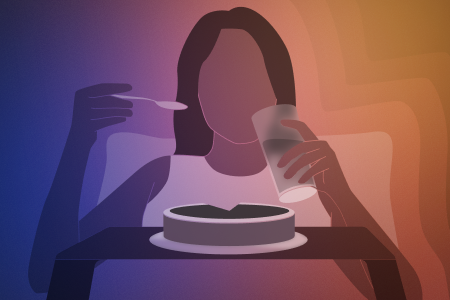
Discover the intricate relationship between late-night eating and its impact on sleep duration and quality
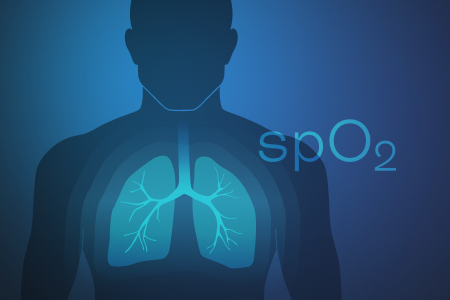
From boosting cognitive function to enhancing physical performance, discover the impact of blood oxygen levels on various aspects of health

The relationship between stress and productivity and how Welltory can help you plan better
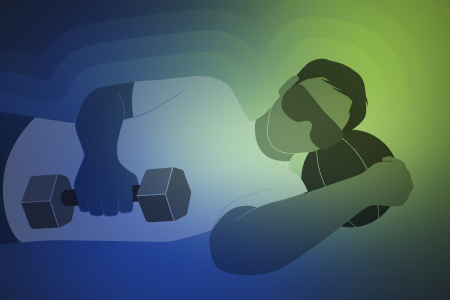
Does sleeping burn any calories, should you exercise right before bed and how much do you need to sleep to burn a 1000 Cal
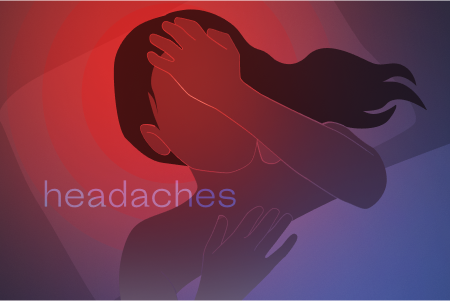
All you needed to know about headaches at night – types of nighttime headaches, their causes, possible treatment and how to avoid them.
 App Store
App Store
 Google Play
Google Play
 Huawei AppGallery
Huawei AppGallery
 Galaxy Store
Galaxy Store







